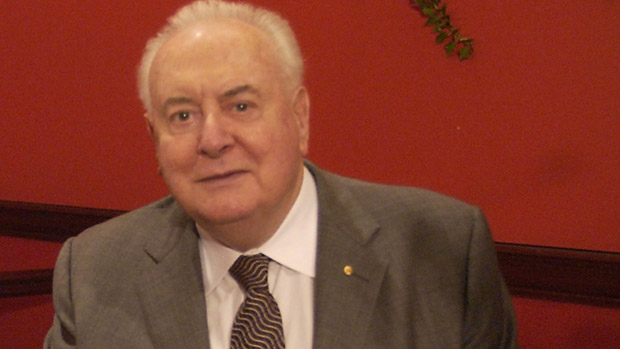Australia mourns former PM Gough Whitlam
With a raft of radical social reforms, Gough Whitlam ushered in an era of sweeping change

A free daily email with the biggest news stories of the day – and the best features from TheWeek.com
You are now subscribed
Your newsletter sign-up was successful
Gough Whitlam, one of Australia's most influential prime ministers who oversaw a period of massive social change, has died at the age of 98.
The family of the former leader announced his death, but did not provide any details.
Whitlam was "an imposing presence" in Australian politics for more than two decades, the Washington Post says. He presided over an era of sweeping change, reviving the fortunes of Australia's Labor Party after 23 years of conservative government, and introducing a raft of profoundly impactful reforms.
The Week
Escape your echo chamber. Get the facts behind the news, plus analysis from multiple perspectives.

Sign up for The Week's Free Newsletters
From our morning news briefing to a weekly Good News Newsletter, get the best of The Week delivered directly to your inbox.
From our morning news briefing to a weekly Good News Newsletter, get the best of The Week delivered directly to your inbox.
But his time in government was damaged by the resignation of ministers, which led to Whitlam's ultimate dismissal by the governor-general after just three years in power.
Prime Minister Tony Abbott described Whitlam as a "giant of his time" and said that flags across Australia would fly at half-mast today.
"He united the Australian Labor Party, won two elections and seemed, in so many ways, larger than life," the prime minister said.
Opposition leader Bill Shorten, the current leader of the Labor Party said: "I think it is fair to say, regardless of one's politics, the nation has lost a legend. Gough Whitlam redefined our country and in doing so he changed the lives of a generation," Shorten added.
A free daily email with the biggest news stories of the day – and the best features from TheWeek.com
Whitlam's list of achievements and reforms is long, the BBC says. He introduced Australia's first national health insurance system, introduced free university education, paved the way for recognition of Aboriginal ownership of land, reopened diplomatic relations with China, changed the national anthem from God Save the Queen, brought an end to Australia's involvement in the Vietnam war and dramatically increased funding to the arts.
He also abolished the death penalty, lowered the voting age to 18, brought an end to military conscription and relaxed divorce laws.
Former Liberal prime minister, Malcolm Fraser, described Whitlam as a "formidable opponent" and said that in spite of their political rivalry, they shared many values.
"He wanted Australia to be an independent player on the world stage. He didn't want Australia to be a subject to any other nation," Fraser said. "His ambition for Australia was boundless. His enthusiasm was great and Australia is a much richer country for his life."
Whitlam was "notoriously immodest" about his achievements, the Washington Post notes. When an Australian reporter asked him about his views on God and the afterlife he said: "You can be sure of one thing. I shall treat Him as an equal."